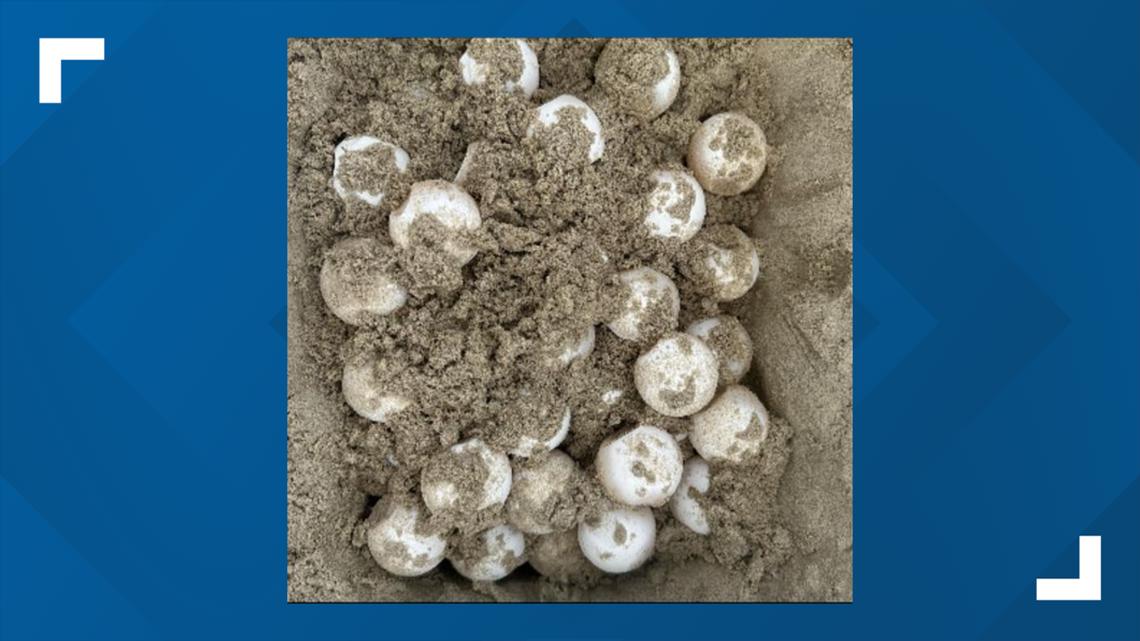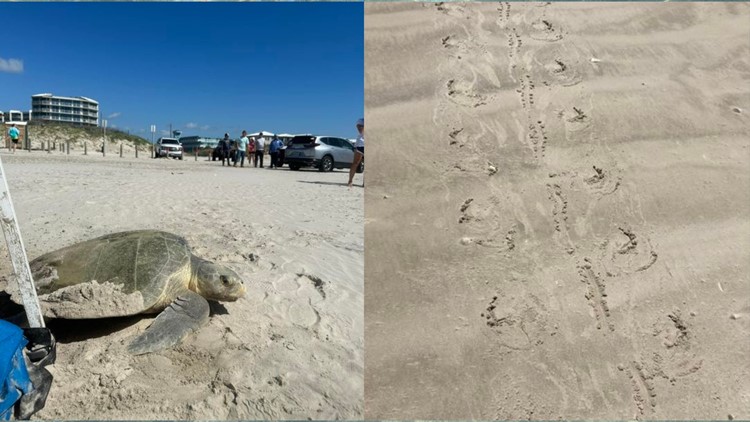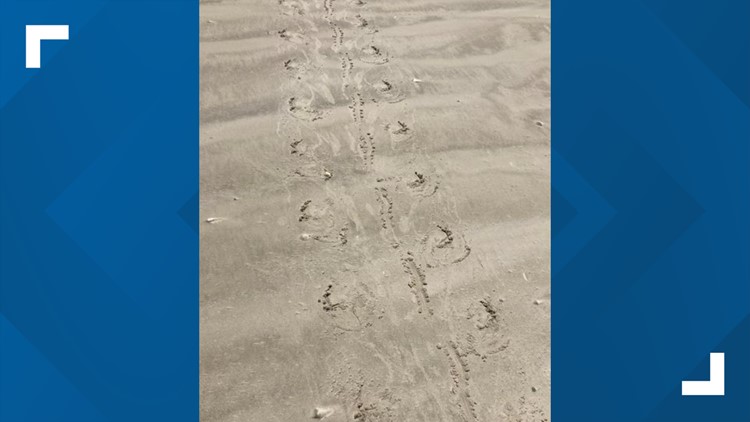CORPUS CHRISTI, Texas — In about two short weeks, Coastal Bend beachgoers could soon begin playing a vital role in helping the endangered Kemp's ridley turtle species have a safe nesting season.
The Amos Rehabilitation Keep is asking beach visitors to call their sea turtle hotline (1-866-TURTLE5) if they find tracks or sea turtles on the beach.
The environmental conservation organization says it is important for beach combers to preserve the tracks and keep their distance if the turtle is present, as they can become frightened and return back to the water without nesting.
Once nesting season officially begins, ARK patrollers will be on the beach every single day searching for the endangered sea turtle species and protecting nesting moms and their eggs.
ARK says it can be more difficult to spot Kemp’s ridley eggs, as the species typically nests during the day, unlike Greens and Loggerheads.
The daytime nesters typically come up to shore on extremely windy days, which can make their tracks more difficult to spot.
Check out these Kemp's ridley sea turtle tracks!
Kemps are also the smallest species, and their tracks measure only around 65 centimeters. The turtles' key identifier is that they lift themselves up to walk, making asymmetrical tracks that look like check marks.
Fun Facts
- Did you know that Kemp’s Ridley’s lay around 100 eggs when they come up to nest?
- This number varies based on the turtle, if they are a first-time mom, and where we are in the season. Especially as these moms typically nest multiple times throughout a season!
- Unlike chicken eggs, sea turtle eggs are incredibly soft and harden over time. Kemp’s ridley eggs incubate for around 45-60 days and once hatched they will then make their journey to the ocean!


ARK says that nesting season is a critical time when it comes to saving the species and increasing the population.







